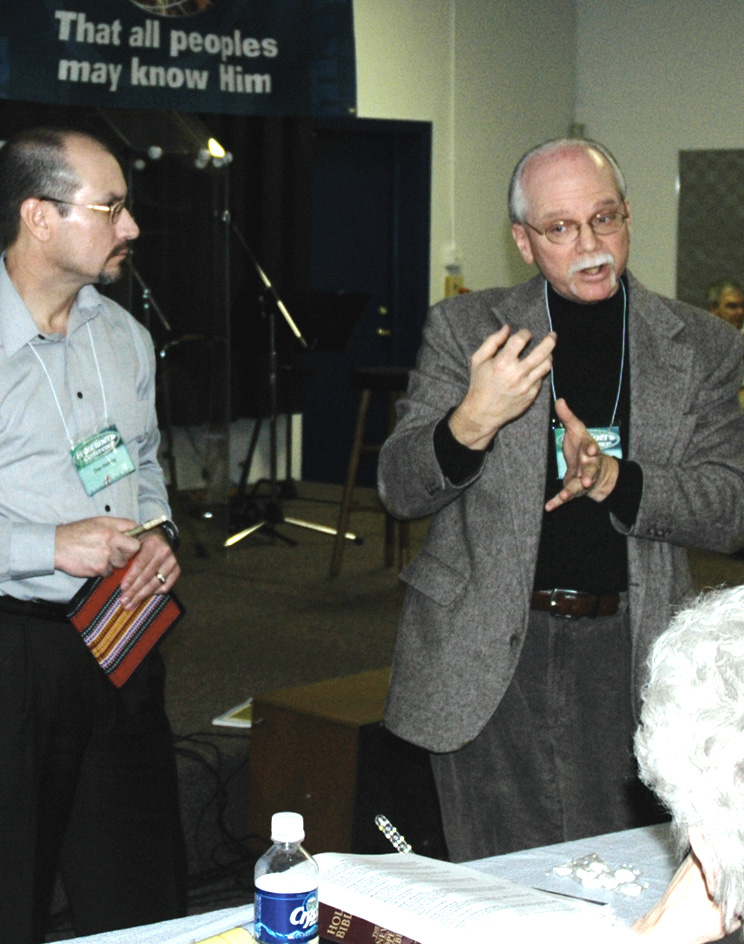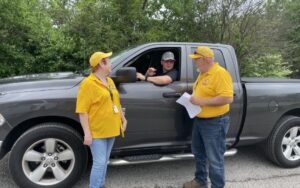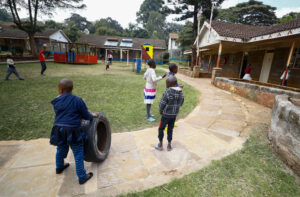
FAYETTEVILLE, Ga. (BP)–“It’s not about us.”
Local church leaders heard that statement often during global missions training conferences in Georgia and Missouri in February and March.
Like many Southern Baptists who attended the training — called a “Frontliners Conference” — Dan Hamby already knew that missions meant letting go of his own agenda. But the conference challenged him to better help others do the same.
“I work in a job where people’s lives are in my hands,” said Hamby, a corporate pilot who volunteers as director of missions at New Heights Baptist Church in Ringgold, Ga. “But the job of missions is even more critical than that because, as believers, people’s eternal destinies are in our hands. And the task isn’t just for church leaders. Every Christian is commanded to share the Gospel.”
Despite that mandate, today about 1.65 billion people have never heard the name of Jesus, keynote speaker Ken Sorrell told Frontliners participants. “More people across the world have access to Coca Cola than the message of Jesus Christ,” said Sorrell, a missionary of the Southern Baptist International Mission Board.
Sorrell serves as regional training associate for the board’s Middle America and Caribbean region. That region’s leadership team offers Frontliners conferences to help believers learn how they can most strategically carry out Christ’s Great Commission.
IMB President Jerry Rankin, addressing a Frontliners session at Flat Creek Baptist Church in Fayetteville, Ga., reminded church leaders of their responsibility for reaching the nations. “The Great Commission wasn’t given to the International Mission Board. It was given to every believer,” Rankin told the audience of pastors and laypeople from Alabama, Georgia and Tennessee.
Rankin said the Dec. 26 earthquake and tsunami in southern Asia, where he once served as a missionary, “stirred in my heart a sense of urgency” for reaching all the world’s people. After the disaster, “The secular media was asking, ‘Where was God?’ But that was the wrong question. The question was, ‘Where were we? Where were we that we allowed so many of these people to enter into eternity without ever having the opportunity to hear Gospel?’
“Folks, we can’t wait,” he added. “We can’t go about missions as usual.”
That means local Southern Baptists need to let go of old paradigms and adopt new models of global missions, conference leaders emphasized.
Sorrell urged participants to re-define what they’ve traditionally considered missions.
“Not everything we do outside the four walls of the church is missions, unless it leads to evangelism and church planting,” he noted. “Let’s call missions the things that lead to eternal results.
“And missions isn’t just evangelism,” he said. “Missions has to lead to church” because new Christians need a body of believers to help them grow spiritually. “[The Apostle] Paul left behind new believers and churches on all his missionary journeys.”
Sorrell affirmed church leaders who had served overseas as volunteers but asked: “What happened the day after you left? Did people you led to Christ have a fellowship they could be baptized into, a place to be discipled? Or did you just leave newborn babes [in Christ] on the doorstep?”
Strategic missions also requires taking the Gospel to those who have never heard, not lingering in places where the message has already been preached, with Sorrell noting, “We need to keep pushing toward lostness.”
Frontliners participants said they gained a renewed commitment to global missions and a better understanding of how they can be strategically involved.
“I was impressed to hear speakers say, ‘We can’t do this task just with career missionaries. We have to have the local church,’” said Joni Owens, a member of the missions committee at McDonough Road Baptist Church in Fayetteville. “I think our help is being asked for maybe in a way I hadn’t heard before.”
“I’d been at the point where I was almost ready to quit doing (volunteer) missions,” Joel Stewart, pastor of First Baptist Church in Sunny Side, Ga., said, “because I felt like from a stewardship perspective, we weren’t doing the best that we could do.
“More than anything else, this conference confirmed in my heart how we are supposed to be doing missions,” Stewart said.
Frontliners “really impressed upon our people how much lostness there is. It just boggles your mind,” said Delinda Marling, church-wide missions coordinator at Hamlin Memorial Baptist Church in Springfield, Mo.
Marling, her pastor and another church member attended a Frontliners Conference at Second Baptist Church in Springfield, Mo., last year. They were so enthused about their experience that they led Hamlin Memorial to organize a Frontliners in lieu of this year’s spring revival.
At the end of Hamlin’s Frontliners conference, pastor Jim Flora placed on the communion table slips of paper with “I am willing” written on each one. He asked church members to take a slip if they were willing to either pray, give or go as a missionary. About 90 percent of the congregation came forward to get a slip. Some remained at the altar to pray for unreached people groups. A middle-schooler committed her life to fulltime missionary service. A young man came forward to request baptism.
“When we get excited about the nations, we get excited about seeing our neighbors come to Christ,” said Flora. “I know a lot of pastors see it the other way around. But I think nothing sparks revival like missions.”
–30–
To learn more about Frontliners, visit http://americaregion.org/frontliners or e-mail conference planners at [email protected].
















